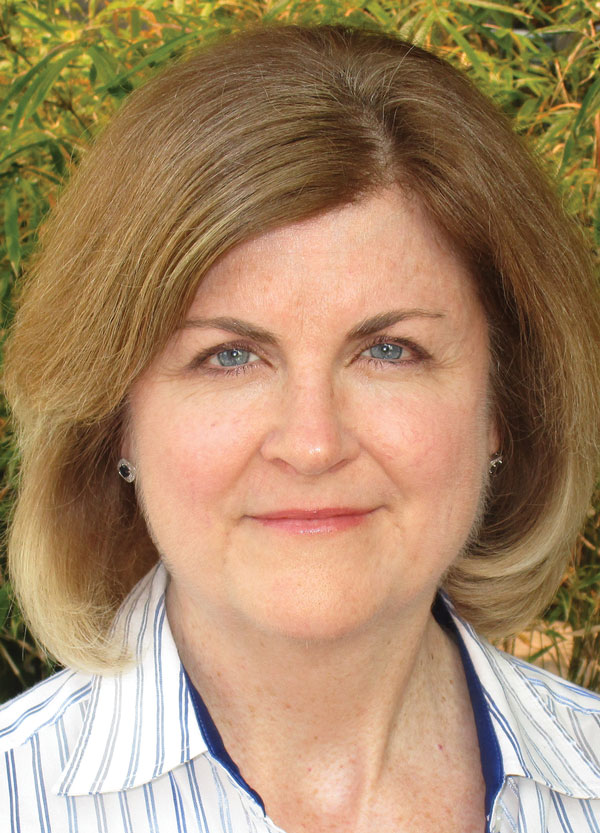RX for a Good Night’s Sleep
Don’t sweep insomnia under the bed. Effective treatments are available.
by Clare M. Sullivan BSN, MPH, OCN
Having trouble sleeping can be frustrating and isolating. It is also a common problem experienced by cancer survivors.
If you have difficulty falling asleep or staying asleep more than three times a week, for a month or longer, you may have insomnia. People with cancer are more likely to experience insomnia due to risk factors such as these:
- Stress or anxiety surrounding the cancer experience
- Cancer-related pain, headaches, nausea, or vomiting
- Side effects from cancer medications, chemotherapy, or radiation
- Changes in routine, such as an overnight stay at the hospital or frequent visits to an outpatient clinic
Often, cancer survivors don’t discuss insomnia with their healthcare team. The likely reason is that, on the surface, insomnia may not seem cancer related. However, if insomnia is ignored, other cancer-related side effects such as pain, anxiety, and fatigue can intensify.
Don’t sweep insomnia under the bed. Effective treatments are available. For starters, a board-certified sleep medicine physician or a behavioral sleep specialist can help by using a new advancement called cognitive behavior therapy for insomnia, or CBT-I. The treatment involves utilizing stress reduction and relaxation techniques that are effective in treating people with insomnia. Often, treatment combines CBT-I with sleep hygiene rituals and practices done at bedtime that help promote better sleep.
Some people find that simply changing sleep behaviors and implementing bedtime rituals is enough to improve their sleep. Don’t wait until your next appointment; here are some things you can do to develop your own healthy sleep routine – starting tonight.
If you have difficulty falling asleep or staying asleep more than three times a week, for a month or longer, you may have insomnia.
Improve your sleep behaviors.
Remove electronic devices from the bedroom, and avoid watching TV or working in the bedroom. Move any clocks out of view of your bed. Make sure your bedroom is free of as much light and noise as safely possible. Consider using earplugs or wearing a sleep mask. Avoid eating heavy, spicy, or sugary foods close to bedtime. Avoid smoking, and limit your caffeine intake. Avoid drinking alcohol, especially four to eight hours before bedtime.
Improve your sleep routine.
Go to bed and get up at the same time each day, seven days a week. Avoid long naps in the late afternoon. Exercise regularly, but not within three hours of your bedtime. Use your bed for sleep and sexual activity only. If you can’t fall asleep, get out of bed, leave the bedroom, and return when you are sleepy.
Consider relaxation strategies.
Talk about fears and worries early in the day, not at bedtime. Practice some gentle yoga, or take a warm bath before bed. Some studies suggest that regular exposure to late afternoon sun may release melatonin and help regulate your circadian rhythm. Just remember to wear sunscreen. Effective types of integrative therapies to try at bedtime include muscle relaxation, biofeedback, imagery, hypnosis, and thought stopping. Ask your cancer team about specialists who can help you learn more about these techniques.
Ask about medications.
Talk with your cancer care team about medications for treating your insomnia. Use caution because many sleep medications can be habit forming and should only be used for a short time. Some medications, if mixed with natural remedies, can have serious interactions. Before considering any over-the-counter products, dietary supplements, or herbs, talk with your cancer care team, as these can potentially interfere with your cancer treatments.
A good night’s sleep is critical for your cancer recovery. Don’t overlook the improvements in physical health and mental well-being that can come from getting consistent, quality sleep. Talk with your cancer care team about any sleep difficulties you are experiencing. They are there to help you.

Clare Sullivan is a clinical manager of patient education at Dana-Farber Cancer Institute in Boston, MA.
To learn more about healthy sleep and sleep disorders, or to find an American Academy of Sleep Medicine–accredited sleep center in your area, visit SleepEducation.org.
This article was published in Coping® with Cancer magazine, May/June 2016.


